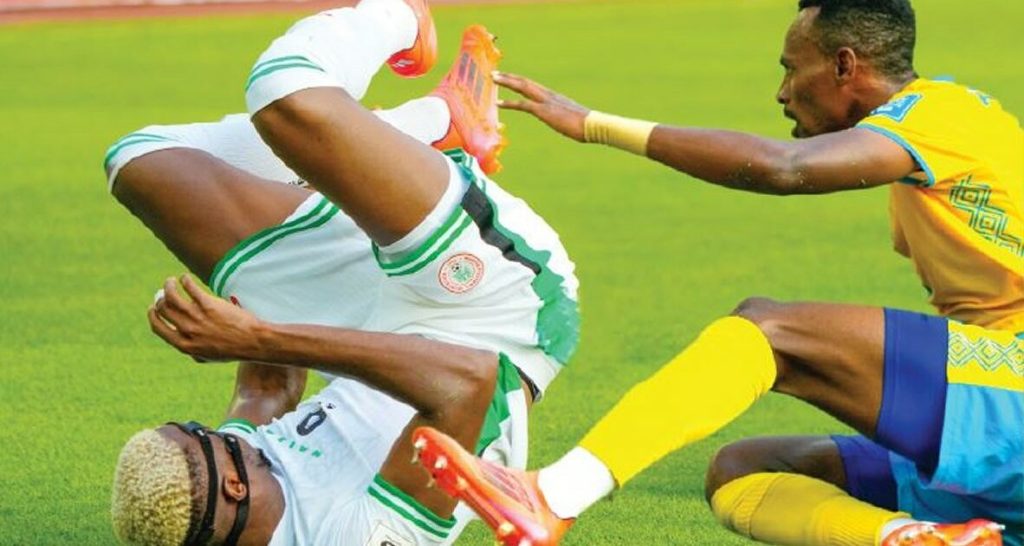The clash between Nigeria and Rwanda during a World Cup qualifier ignited a firestorm of controversy centered around Rwandan defender Claude Niyomugabo and Nigerian striker Victor Osimhen. Niyomugabo’s challenge on Osimhen, which resulted in a chin bruise and forced the striker out of the crucial match against South Africa, drew the ire of Galatasaray fans, Osimhen’s club team. This incident transformed a routine football challenge into an international online furore, showcasing the intense passion and sometimes volatile nature of football fandom in the digital age.
The repercussions for Niyomugabo were swift and severe. His Instagram page became a battleground, inundated with a barrage of hostile comments from Galatasaray supporters. Accusations of being a “butcher” and warnings to stay away from Turkey flooded his account, reflecting the fans’ fury over the injury to their star player. The comments escalated to threats against Niyomugabo and even his family, demonstrating the extreme lengths to which some fans were willing to go to express their anger. The sheer volume and vitriol of the comments forced Niyomugabo to disable comments on his recent posts, attempting to shield himself from the relentless online abuse.
While Galatasaray fans unleashed their fury, rival fans, particularly those supporting Fenerbahçe, found amusement in the situation. They celebrated Osimhen’s absence, using the opportunity to taunt their rivals and express satisfaction at Galatasaray’s misfortune. This added another layer of complexity to the online drama, highlighting the existing rivalries within Turkish football and how they can be amplified by such incidents. The contrasting reactions underlined the tribalism inherent in football fandom, where one team’s loss is another’s gain, even under circumstances as unfortunate as an injury.
Amidst the storm of criticism, a pocket of support emerged for Niyomugabo from his fellow Rwandans. They expressed pride in their captain, framing the incident as a David-versus-Goliath narrative, with Niyomugabo, a player from a smaller footballing nation, unwittingly disrupting the plans of a major European club. This support offered a counterpoint to the dominant narrative of outrage, demonstrating that while the incident had international ramifications, local pride and loyalty remained strong.
This entire episode underscores the growing influence of social media in the world of football. A single challenge on the pitch can quickly escalate into a global online incident, amplified by the instant connectivity and reach of platforms like Instagram. While social media can connect fans and players, it also provides a platform for unchecked negativity, where anonymity can embolden individuals to express sentiments they might not otherwise voice. The incident involving Niyomugabo serves as a stark reminder of the potential downsides of this digital engagement.
The silence from Niyomugabo in the face of this online onslaught speaks volumes. Whether a tactical decision to avoid further inflaming the situation or simply a way to cope with the overwhelming negativity, his lack of response highlights the difficult position athletes often find themselves in when navigating the complexities of social media. This incident raises important questions about the responsibility of online platforms to manage abusive behavior and the need for greater support structures for athletes facing online harassment. It serves as a cautionary tale about the power of online fandom and the potential for it to turn toxic, impacting the lives and mental well-being of players.


